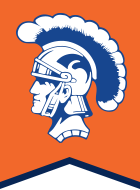Statement of Philosophy
In preparing individuals to develop their fullest potential for living in the society of today and tomorrow, the Board of Education and the staff of the school district:
- Recognize their responsibility to help meet the physical, intellectual and emotional needs of the children; particularly the need to inquire, learn, think, and create; to establish aesthetic, moral and ethical values; and to relate satisfactorily to others in social situations involving family, work, government and recreation.
- Accept primary responsibility for giving students a mastery of the basic skills of learning, thinking and problem-solving; teaching them to use the various media of self-expression; instilling in them knowledge of the social and natural sciences; acquainting them with the richness of our heritage; and stimulating them in productive work in various areas of human endeavor.
- Acknowledge the importance of their supplemental role to the home and other social agencies in developing habits and attitudes which make for effective personal living, the maintenance of optimum physical and mental health, and the establishment of sound moral, ethical, and aesthetic values.
Realizing that education as here defined is a lifelong process, the school system seeks to orient its graduates toward various types of post-secondary education and further formal training and to provide educational opportunities particularly suited to the needs of adults, both as individuals and citizens in an ever evolving world.
Guidance
Counseling is the primary service of guidance and it rests upon the foundation of the student-counselor relationship. In this relationship, the student is encouraged to freely express his or her thoughts and feelings and, where necessary, to gather information and examine alternative plans before acting. Ultimately, the goals of counseling are to help students gain a better, more positive sense of themselves while assuming a greater responsibility for making plans and decisions in their lives.
As the Counselor works to better know his/her students, information is gathered about students from grades, standardized tests, information forms as well as direct contact with students. Where necessary, conferences with parents, teachers and students will take place. The primary focus is to help students and their parents better understand personal, academic and vocational needs and goals.
Using our locally developed counseling plan for grades 6-12, the school counselor works with students and their parents to better understand:
● How interests, aptitudes and abilities work together.
● Opportunities for post-high school education and career planning.
● The college admission process, including selection and application,
financial aid and scholarship process.
Your counselor is available to answer your questions and ease your concerns about your personal life or your studies at Seward and to assist you in making plans for the future. The Guidance Office is a rich source of information on every aspect of career opportunities, college information, news of scholarships and financial aid as well as pertinent test dates (PSAT, SAT, ACT, AP Exams, etc.).
It should also be noted that the classroom teacher is also an integral part of any work that the school counselor does with a student. The counselor relies heavily on teachers to provide insights and information about the individual student.
Definitions
The terms defined here are used in various parts of this manual. It would be helpful to read them before examining the manual and refer to them for better understanding.
Prerequisites: Subjects that are required as background for some advanced subjects, example: Integrated Algebra must be completed before taking Geometry.
Elective: A subject that may be chosen by a pupil in addition to required courses.
Unit of study: At least 180 minutes of instruction per week throughout the school year, or the equivalent.
Unit of credit: Earned by the mastery of the learning outcomes set forth in a New York State or locally developed syllabus for a given high school subject, after a student has had the opportunity to complete a unit of study in the given subject area.
Half unit of credit: Credit given for successful completion of a high school subject taken four or five periods a week for one half year, or every other day for an entire school year.
Regents examinations: State achievement tests based upon syllabus prescribed by the NYS Department of Education.
Occupational education: All programs of instruction in agriculture; business, including marketing; home economics; health occupations; technical education; technology education/industrial arts; and trade education.
Regents class: Any class that concludes with a Regents exam.
Local class: Any class that concludes with a local exam.
Community College in the High School (CCHS): Courses are offered here at Seward via SUNY Orange. Students can earn collegiate credit. Tuition and fees apply.
College Experience Program: Enables Seward students to attend college classes at local colleges, such as SUNY Orange.
Syracuse University Project Advance (SUPA): Courses are offered here at Seward via Syracuse University. Students can earn collegiate credit. Tuition and fees apply.


